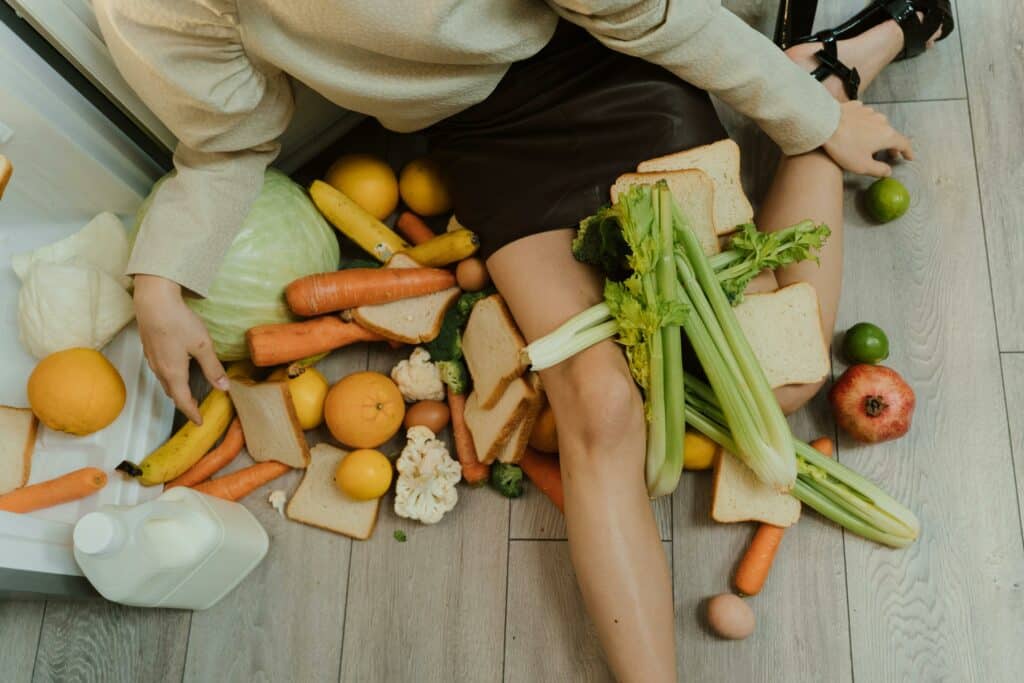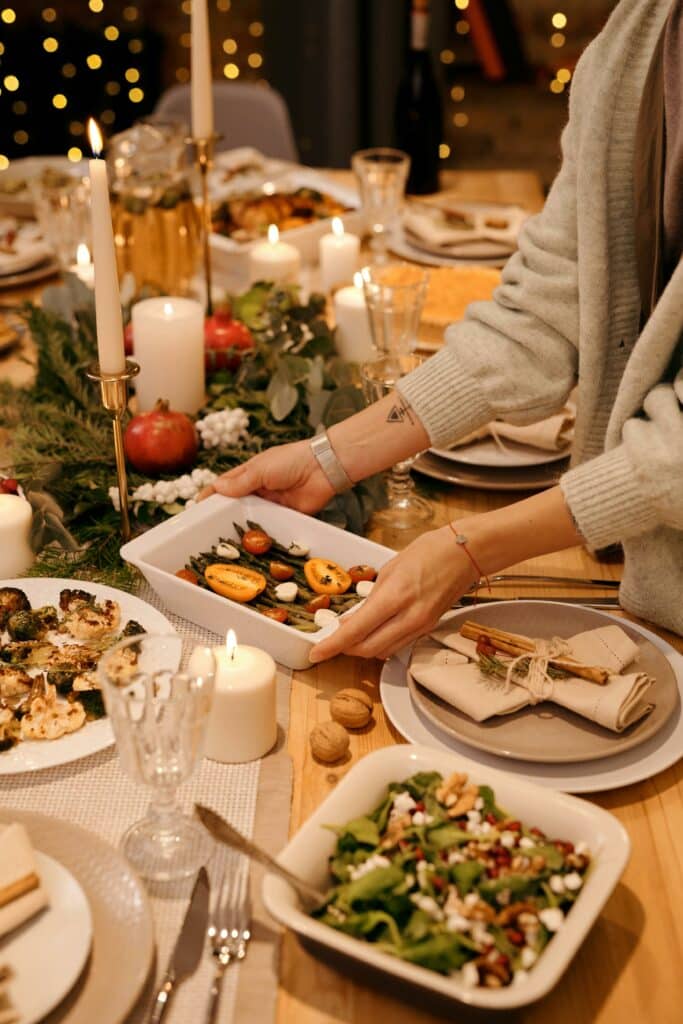Food waste during the holiday season is a widespread problem, especially since the Christmas season is traditionally a time of abundance, characterized by large festive meals and well-stocked pantries. Hosts often want to ensure there is enough variety for every guest, which frequently leads to overestimating actual needs and buying too much. In Germany, approximately 11 million tons of food end up in the trash each year. This food waste during the holidays not only strains household budgets but also impacts the environment, as valuable resources like water and energy are wasted in the production, transportation, and disposal of unused food. By adopting more mindful practices, everyone can contribute to reducing food waste.
Why is the holiday season a time of food waste?
During the holidays, many people tend to buy and prepare more food than necessary to ensure everyone is well taken care of. This excess often leads to unnecessary waste. Several factors contribute to this problem:

Over-Shopping and Cooking People often underestimate actual needs and prepare too much food. Out of fear of running out, large quantities are bought and cooked, which then aren’t entirely consumed.
Traditions and Social Expectations Festive traditions and the desire to offer a generous spread also contribute to waste. Often, more is cooked than can be eaten, as it’s part of holiday culture to offer an abundance and cater to all preferences.
Bulk Purchases and Special Offers Many take advantage of special holiday offers and large packaging sizes, but these can encourage buying more than needed, often resulting in waste.
Improper Storage and Delayed Use Many foods spoil due to improper storage or are not used in time, leading to them being thrown away before they’re even consumed.
This unnecessary waste leads to increased CO₂ emissions and a heavy environmental burden. Careful planning and using leftovers can help make the holiday season more sustainable.
Practical Tips for Meal Planning
Plan Carefully Good planning is key to avoiding food waste. Use portion calculators to estimate the right amount for your guests and create a shopping list based on your menu. This way, you buy only what’s really needed and avoid unnecessary impulse purchases.
Shop Smart Stick to your list while shopping to avoid over-buying. Resist the temptation of offers and bulk packages – these often lead to unused food.
Choose Seasonal and Local Foods Buying seasonal and local foods is not only good for the environment but often more cost-effective. In winter, ingredients like kale and chicory are ideal, as they’re fresh, local, and sustainable. This supports local agriculture and reduces CO₂ emissions with shorter transportation routes. Here you can learn more about the importance of seasonal and regional foods.
Tipps to minimize food waste during the holiday season
Creative Ideas for Using Leftovers
Leftovers don’t have to end up in the trash – with a little creativity, they can be transformed into delicious dishes. Soups, casseroles, or sandwiches are easy ways to repurpose leftovers. Meat leftovers work well in broths, and vegetables can be added to stews or quiches. Freezing leftovers is also a great way to extend their shelf life.
- Sauce Leftovers: Freeze leftover wine or sauce in ice cube trays to add flavor to future sauces.
- Holiday Dumplings and Red Cabbage: Leftover dumplings taste fantastic when fried, and red cabbage can add flavor to the next stew.
- Roast and Cookies: Leftover roast can be added to New Year’s Eve raclette, while hard cookies, gingerbread, or chocolate can be used in layered desserts.
- Leftover Ingredients: Spices like cinnamon and cardamom enhance curries or teas. Nuts can be roasted and used as salad toppings.
Kitchen Mishaps? Don’t Worry!
Mistakes in the kitchen aren’t disasters – they’re opportunities to get creative. An overly salty soup can be balanced with water or potatoes. Burnt meat? Simply remove the burnt part and cut the rest into bite-sized pieces for finger food with dips. Over-seasoned dishes can also be balanced with mild sides like rice or vegetables. Don’t let mishaps throw you off – improvise and surprise your guests!

Realistic Planning of Guest Numbers
Accurate planning of guest numbers is essential to avoid food waste. Check in advance who will be attending and adjust your dishes accordingly. Coordinate with guests on who will bring what to avoid duplicates and ensure there’s enough food without excess.

Pack Up and Share Leftovers
Encourage guests to take leftovers home. Not only is this an effective measure against food waste, but it also lightens the load for you after the feast. Have containers ready so everyone can easily take home extra food.
Donate Instead of Discarding
If you still have surplus food, consider donating it to social organizations. Many food banks and organizations welcome well-preserved food. Another way to reduce food waste is by using the “Zu gut für die Tonne!–” app. This app provides helpful tips and recipes for repurposing leftovers and shows how you can creatively use ingredients. By doing so, you’re making a valuable contribution to reducing food waste.
Developing Sustainable Holiday Traditions
Why not introduce new, eco-friendly traditions this year? A Zero-Waste Dinner is a great start: plan precisely how much food is needed to avoid excess. This way, you can host a festive yet sustainable meal with minimal waste.
A leftovers party could also be a highlight. Invite friends and family to creatively repurpose holiday leftovers. It’s not only sustainable but also a fun group experience.
Reducing meat consumption by opting for plant-based alternatives during the holidays or only serving meat on certain days is another step toward a more sustainable holiday season. Cutting back on excessive meat consumption helps relieve the environment.

Zusammenfassung
The holiday season is a great opportunity to integrate sustainable practices into our festive traditions. Through careful planning, creative leftover use, and introducing new habits like Zero-Waste Dinners, we can significantly reduce food waste. Sharing leftovers and the option to donate excess food contribute to the community and raise awareness for responsible resource use. Ultimately, these changes help make the holidays not only more festive but also more environmentally friendly.




